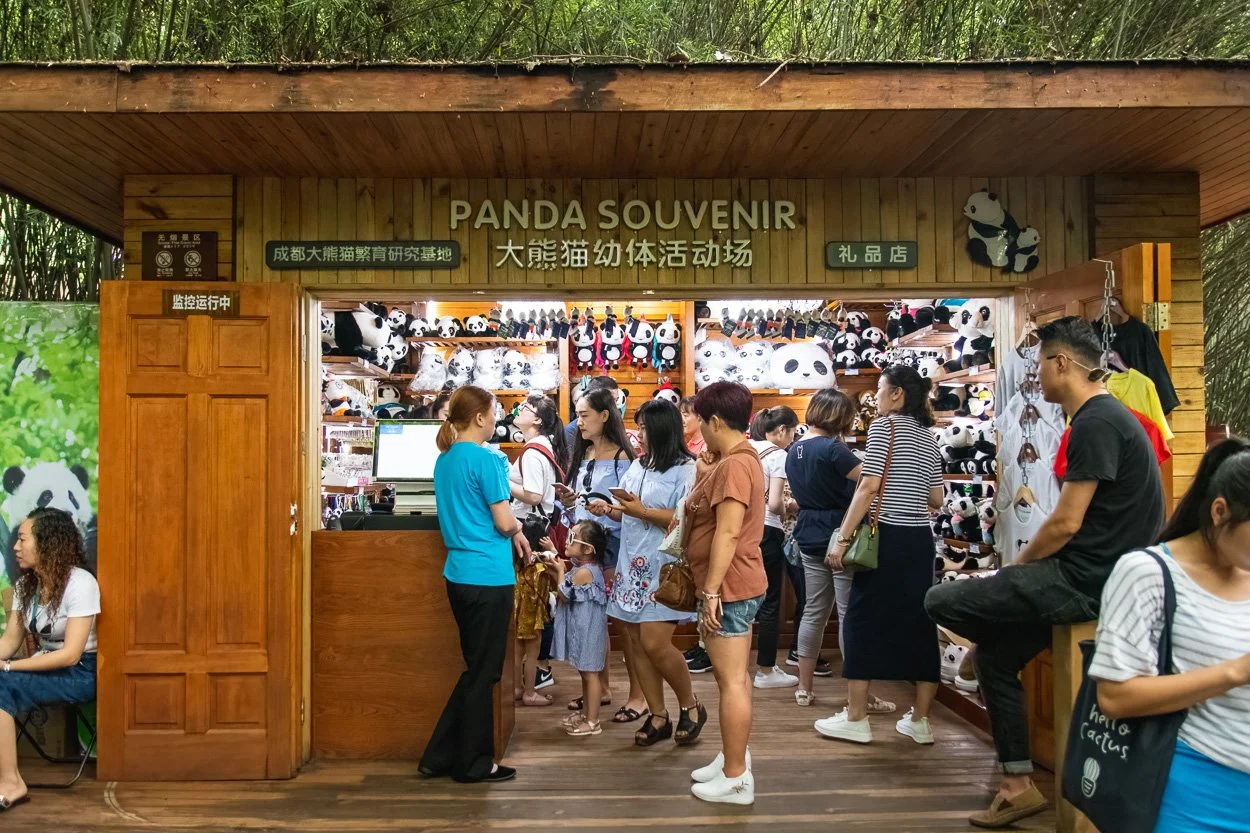Everybody loves pandas, everybody, but me.
I don't hate pandas either, I respect and admire them as much as I do any other large mammal. I just never understood the collective infatuation with this particular species of bear.
In search of enlightenment, I posted the question "why are people obsessed with giant pandas?" on several walls of my social media. Cute was the most common response, followed by fluffy, dopey and stupid. One of my friends even apologized on my behalf for asking such a contentious question and claimed I had mistyped and that my question should have been "why aren't people more obsessed with giant pandas?" The traits put forward are not unique to pandas; grizzly bears are fluffy, sloths are dopey and turkeys are stupid. But pandas are the only animal I can think of that possess all these traits.
Is this triad of traits the answer to my question? Whilst this research is a good start, I felt like there is more to the secret of the panda's charm. To further my research I needed to travel back in time, to when I saw giant pandas myself.
Bamboozled
The year is 2018. The #Metoo movement was dominating social media, a team of Thai soccer players were rescued from a sunken cave and I was in China with my friend Myles on my way to New Zealand.
After arriving in the insanely busy city of Chongqing, we travelled south and then east before arriving in Chengdu which immediately became my favourite city in China. There was a feeling of calmness here compared to the manic cities we had visited since arriving. Chengdu is one of the main cities in western China and is home to the descriptively named "Chengdu Research Base of Giant Panda Breeding", more commonly known as the Chengdu Panda Base. We dedicated a whole day on our busy schedule to visit the panda base and see these famous bears.
The Panda Bus. A rather ridiculous looking bus with a giant panda face on the front.
The base consisted of several large enclosures linked by a series of long walkways, each shaded by tall walls of dark green bamboo that blocked the hot midmorning sun. The panda enclosures were accompanied by a large adjacent flat viewing area, spacious enough to accommodate hundreds of people, and there were hundreds on the day we visited, each jostling and shuffling slowly forward to get a better look at the pandas, phones and selfie sticks ready in hand. I was at the back of the crowd far away from the pandas, but my very large camera lens, a burden that I decided to lug across the world, gave me an unfair advantage. Through my highly magnified window, I observed behaviour unlike any other animal I had seen before.
There were four pandas I could see in the enclosure; two perched up in a tree platform and two on the ground. The pair on the ground had each parked themselves next to a conveniently formed mound of bamboo, no doubt assembled by one of the base's many attentive keepers. The pandas were sat in a reclined position, reaching over to grasp sticks from the piles, manoeuvring the green stems to their mouths, chewing the long sticks loosely, their bodies becoming increasingly covered in bits of discarded bamboo, their protruding bellies beginning to resemble white islands in a sea of half-eaten husks. The recumbent eating manner reminded me of the depiction of Roman aristocrats eating grapes. It was bizarre to see any animal eat in this leisurely form.
The two on the tree platform had taken a short break from eating to relax. The one at the front was busy scratching his huge white belly, a teethy grin growing across his face. The other panda was attempting to relieve an itch on his back with a slow gyrating motion against a barkless tree, stripped bare and smooth by many previous gyrations.
The pandas looked blissfully happy and seemed unapologetically content with either sitting next to mounds of prepared bamboo and eating or lounging around in the tree platforms. They do this without looking tired or sleepy. Unlike other animals, such as lions whom I've observed sleeping throughout most of the day, pandas, in contrast, are constantly busy doing very little. The only burst of energy I saw was a panda charging towards a peacock that had wandered into the enclosure. Even this moment of aggression looked ridiculous with onlookers laughing and clapping.
Small giftshops dotted between the enclosures. A small shire of panda paraphernalia.
Bear Necessities
This story was my attempt to understand and distil the undeniable charm of the giant panda. I think their charm is the result of their innocent and un-animal like behaviour, both I believe are a result of their diet. Their decision to diverge from the carnivorous and omnivorous diets of their evolutionary cousins to a strict bamboo diet, a diet that would make even the most hardcore vegan cringe, is not fully understood by scientists. Genetic research has shown that pandas have misplaced a gene in their DNA that allows them to taste meat. If the pandas were able to find this missing gene and opted to use their powerful jaw muscles to crunch bone over bamboo, this would dispel their innocence immediately. I could imagine the sight of a blood-faced panda at Chengdu crunching through a carcass would send the mass of spectators running screaming in horror, immediately burning down the gift shop and flipping over the panda bus. But the blameless pandas only chew bamboo.
Pandas are currently in an awkward evolutionary position as they still predominately have the digestive system of a carnivore and struggle to digest bamboo efficiently, which is already low in nutrition and energy. They can't gorge on one big high energy meal and sleep it off like other large mammals. Instead, they have to continuously keep eating and wander around in their dopey and clumsy state. I believe this is why we love them. They are innocent vegetarians and uniquely clumsy. Slow-moving gentle giants, huggable, harmless and haphazard.
Perhaps I do like pandas after all.













